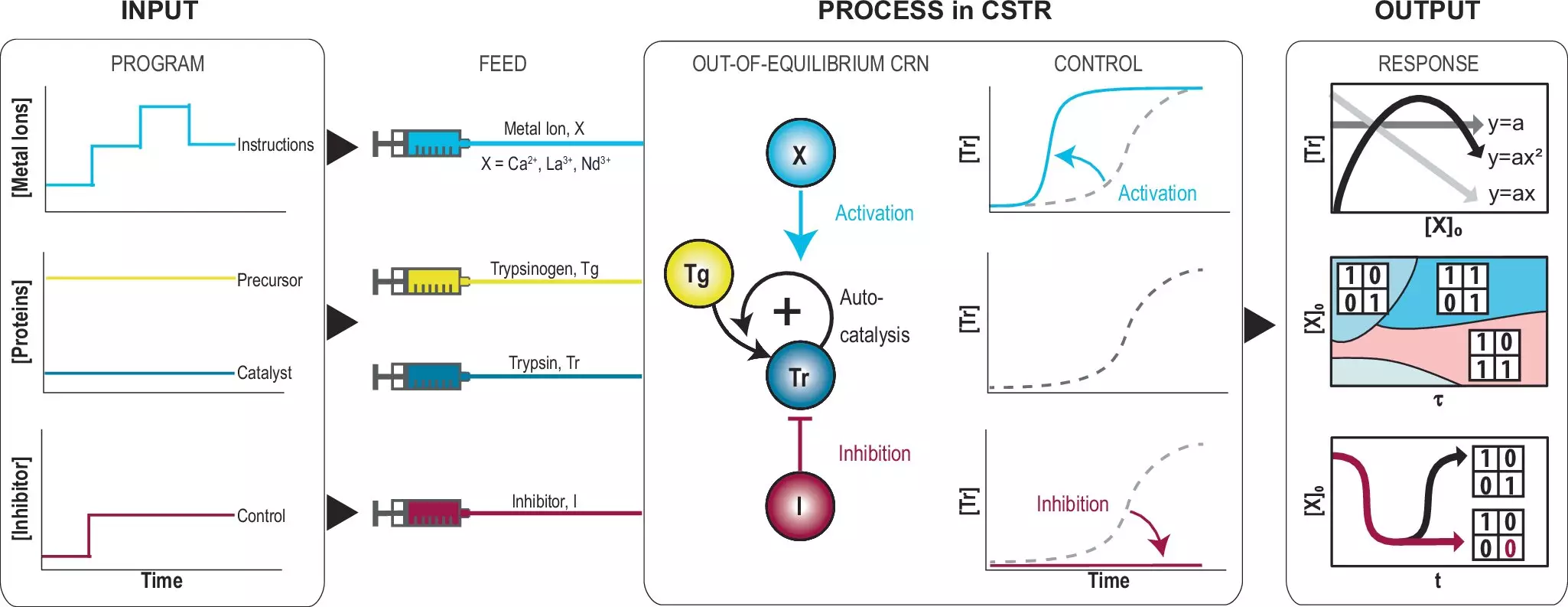In a remarkable development, researchers at the University of Twente have unveiled a groundbreaking technique that allows for the precise manipulation of chemical reactions through the use of metal ions. This innovative approach not only advances our understanding of chemical processes but also paves the way for a new class of computers that mimic the cognitive abilities of the human brain. Published in Nature Communications, this research represents a significant stride towards replicating nature’s superior information-processing capabilities, which operate with far greater energy efficiency than traditional digital computing.
The research team was driven by the ambition to replicate the intricate chemical interactions that enable living organisms to adapt and thrive in their surroundings. For years, scientists have sought to harness these molecular-level processes to inform the development of advanced computing systems. The Twente researchers have succeeded in their quest by demonstrating how metal ions can be utilized to effectively simulate complex mathematical operations, including polynomial equations and Boolean logic, which are foundational elements in computer science.
These mathematical functions are critical since they form the basis of decision-making processes in both biological systems and artificial intelligence. By programming chemical reactions to yield different results based on input stimuli, the researchers have opened doors to creating ‘smart’ materials that can react dynamically to environmental conditions.
One of the most remarkable facets of this study is the introduction of a memory component within chemical reactions. By leveraging metal ions, the researchers showcased their ability to orchestrate autocatalytic reactions—where the reaction rate increases over time—as well as control the conversion of trypsinogen to trypsin. What sets this research apart is their ability to incorporate a substance to modulate this conversion, effectively allowing the system to exist in dual states, thus providing it with a rudimentary form of memory.
This memory capacity is pivotal, as it enables chemical systems to store information temporarily, similar to how synapses in the brain work. Albert Wong, a leading researcher, asserts that their findings establish a foundational element for the development of intelligent systems that can process information in ways that are akin to biological organisms.
The implications of this research extend beyond the immediate realm of artificial intelligence. The ability to program chemical networks introduces exciting potential applications in fields such as nanobiotechnology and the exploration of the chemical origins of life. As we continue to unravel the complexities of life at the molecular level, understanding how to control chemical reactions with precision could lead to revolutionary innovations in both scientific research and technology development.
The University of Twente’s research heralds a new age of chemical informatics that could transform our approach to computation and biotechnology. By mimicking the processes of nature, we are not only expanding the horizons of technology but also gaining deeper insights into the very essence of life itself. This study serves as a stepping stone for future explorations in a field that bridges chemistry, biology, and computer science, inviting us to reconsider what we know about intelligent systems.

